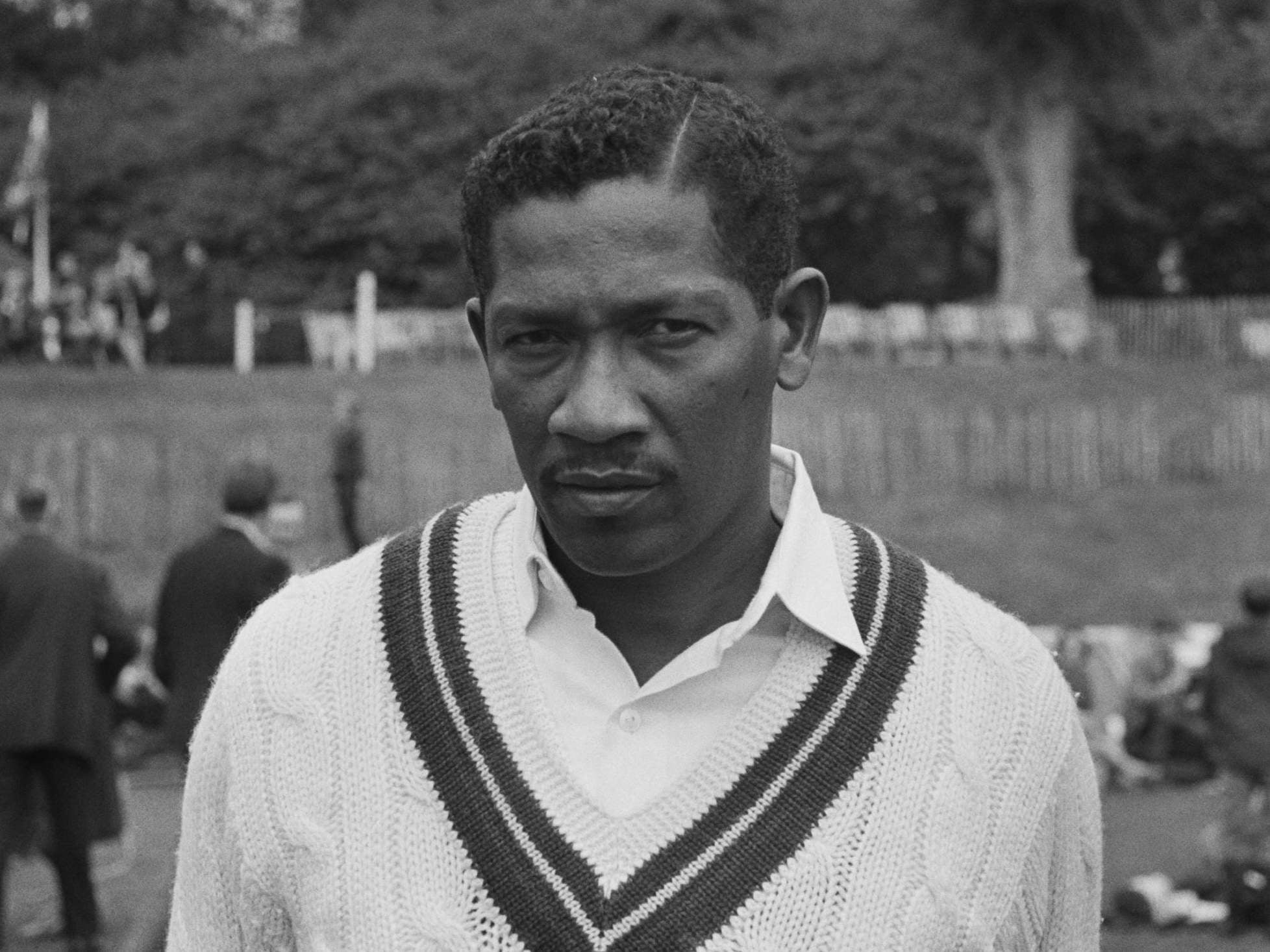Basil Butcher: Batsman and giant of West Indies cricket
He was an integral part of his team’s success in the late 1950s and 1960s

Basil Butcher, who has died aged 86, was a powerfully built and highly effective right-handed middle-order batsman who, between 1957 and 1969, played 40 four test matches for the West Indies. On his day a cultured stroke player and a powerful hitter on both sides of the wicket, he could rarely resist punishing anything short of a length. While a strong on driver, he also possessed a rapier-like square cut. An equally fine fielder, whether close to the wicket or chasing in the deep, his talents as an occasional leg-spin bowler often saw him break even the most stubborn of partnerships.
One of seven children, born in Port Mourant, Berbice, British Guiana (now Guyana), of Amerindian descent, Basil Fitzherbert Butcher was educated at Corentyne High School. First making his mark for Port Mourant Sports Club, he benefited from the influence of the West Indian test star Clyde Walcott, who organised cricket for the local sugar cane plantation workers.
Making his first-class debut against Barbados in 1954, like many before and after, he made a duck on that occasion. Undaunted, a later glut of big scores saw him chosen for the 1958-9 tour of India and Pakistan.
There, rapidly coming to the fore, his 1,333 runs included 50s in each of his first six tests. During the third at Calcutta, he hit 103 and took part in a fourth wicket partnership of 217 in just over three hours with Rohan Kanhai. At Madras, Butcher scored a second successive test century, 142 in five hours and 35 minutes. However, after some surprisingly poor performances in the 1959-60 home series against England, he lost his place in the test team. In 1962, he made a great impression, scoring more than 1,000 runs when engaged as the professional at Lowerhouse in the Lancashire League.
Back in England the following season and playing in all five fiercely contested test matches, Butcher enjoyed a particularly prolific summer. Totalling 1,294 runs, they included a match saving 133, made in the Lord’s test. This, a marvellously determined rearguard effort, included two sixes and 17 fours. Having averaged 47.87 in the series, thereafter Butcher became one of the first names on the team sheet.
Perhaps reaching his peak on the West Indies tour of England three years later, he again topped 1,000 runs. His highest ever score, 209 not out, came in the third encounter at Trent Bridge. Coming to the wicket with his team in trouble, after occupying the crease for seven and three quarter hours, his double century set up a West Indies victory. He made headlines again when England visited the Caribbean in 1967-8. After timely half centuries in the first and third tests, having dismissed Cowdrey in the fourth test, he then ran through the tail to claim a best bowling return of 5-34.
Butcher’s fine form in Australia and New Zealand in 1968-9, won him a place on the truncated tour of England later that summer. Accruing 984 runs, he topped both the batting and bowling tour averages. At Headingley in the final encounter, with the West Indies closing in on victory and a vintage Butcher on 91, he was controversially given out to a hotly disputed catch by wicket keeper Alan Knott off the bowling of Derek Underwood. Losing both the match and the series, they then moved on to Ireland with Butcher now Captain. Bowled out for only 25, they lost by nine wickets.
Retiring from the test arena following that tour, with seven centuries among his 3,104 test match runs, Butcher also claimed five wickets and held 15 catches. The following year he was one of the Wisden Cricketers of the Year.
Stepping down from first-class cricket two years later, there his record of 11,628 runs includes a remarkable 31 centuries. He later became a test selector. While running a sports goods business, he went on to work in public relations for a Guyanese bauxite company. A trust, set up in his name, supports young cricketers in his native Berbice.
He is survived by his wife Pamela, three sons and a daughter.
Basil Butcher, cricketer, born 3 September 1933, died 16 December 2019
Join our commenting forum
Join thought-provoking conversations, follow other Independent readers and see their replies
Comments
Bookmark popover
Removed from bookmarks